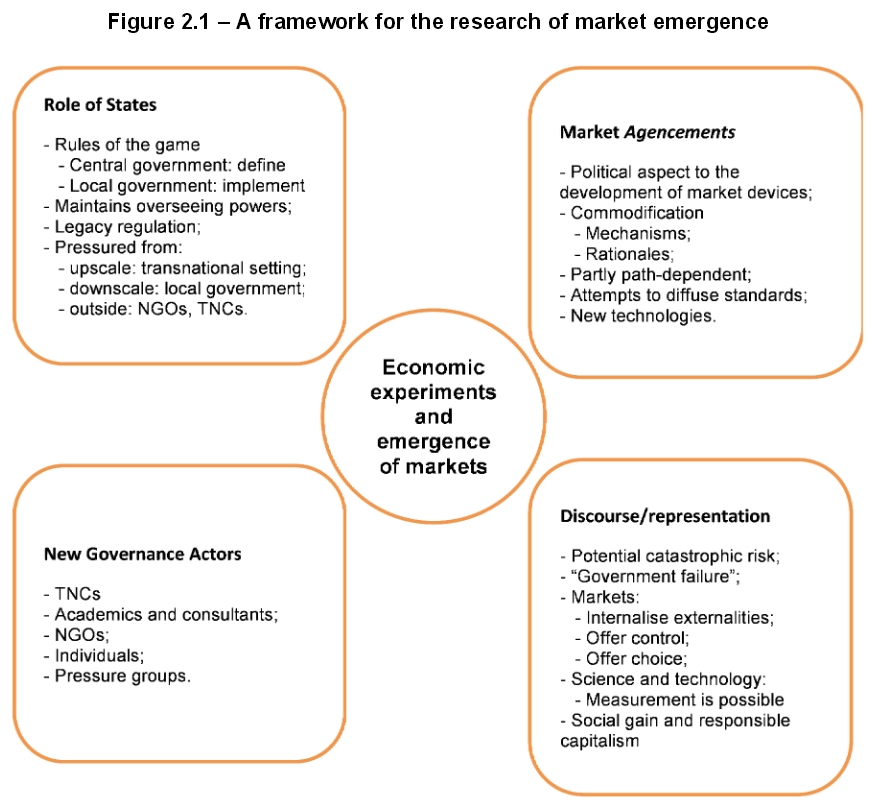 As a regular reader of the Biodiversity Offsets Blog you have seen multiple contributions by Carlos Ferreira on this blog which clearly mark his expertise in the field of biodiversity offsets. It is therefore great to note that his doctoral thesis which he has completed at the University of Manchester (2013) is now available as full text (pdf). It is entitled “Performativity and pluralities of biodiversity offsetting experiments: Towards a synthesis of economy as instituted process and economy as performativity”.
As a regular reader of the Biodiversity Offsets Blog you have seen multiple contributions by Carlos Ferreira on this blog which clearly mark his expertise in the field of biodiversity offsets. It is therefore great to note that his doctoral thesis which he has completed at the University of Manchester (2013) is now available as full text (pdf). It is entitled “Performativity and pluralities of biodiversity offsetting experiments: Towards a synthesis of economy as instituted process and economy as performativity”.
For more information you can download the thesis here or find a pdf here and see the abstract below:
Ferreira_2013_Performativity and pluralities of biodiversity offsetting experiments
Abstract
Development and land use change diminish the quantity of natural habitat, impacting negatively on the number of animal and plant species – biodiversity. Concern about the consequences of these losses has led to calls for mechanisms which allow development to proceed only when no net loss of biodiversity can be assured, such as biodiversity offsets. Markets for biodiversity offsets are being tried as mechanisms for achieving this societal objective in the most efficient manner possible.Theoretically, this thesis develops a framework connecting the Polanyi-inspired notion of the economy as an instituted process, and concepts developed by Callon and colleagues in the Social Studies of Finance literature. This framework is used to analyse the emergence, development and expansion of markets for biodiversity offsets.Using qualitative methodologies, the research examines in detail three existent biodiversity offset markets: Species Banking (United States), Impact Mitigation Regulations (Germany) and Biodiversity Offsets (England). The emergence of markets for biodiversity offsets is shown to be the result of performativity of economics. Changing representations of biodiversity, anchored on economic sciences, lead to policies which create economic experiments, such as markets for biodiversity offsets. Because these markets are historical and geographically contingent, the economic experiments emerge in the context of preexisting regulations and traditions, resulting in variety of forms of organising biodiversity offset markets. To bring biodiversity to the market involves measuring and quantifying externalities. This requires the creation and development of market agencements –assemblages of agents and market devices – to commodify biodiversity. These agencements constitute the technical infrastructures upon which the markets are built,but they too are contingent of pre-market practice. This creates tensions between the role of agents and the role of devices inside the market infrastructure. Biodiversity offsets are shown to not maintain their commodity status beyond certain geographical and geopolitical boundaries. The result is the creation of mutually exclusive market nodes, between which no trade takes place. Despite common origins and infrastructures, the local markets do not exchange between themselves.This thesis contributes a framework for the analysis of market emergence, in which two literatures are used to complement each other’s limitations. As a result, the thesis is able to conceptualise how a common generative mechanism results in variety of economic organisation. It also demonstrates that it is possible for markets to share a regulatory and technical infrastructure, but not exchange between themselves and expand.
Keywords : Biodiversity Offsets; Conservation; Instituted Economic Process; Markets; Performativity of Economics; Sustainability; Sustainable Consumption
